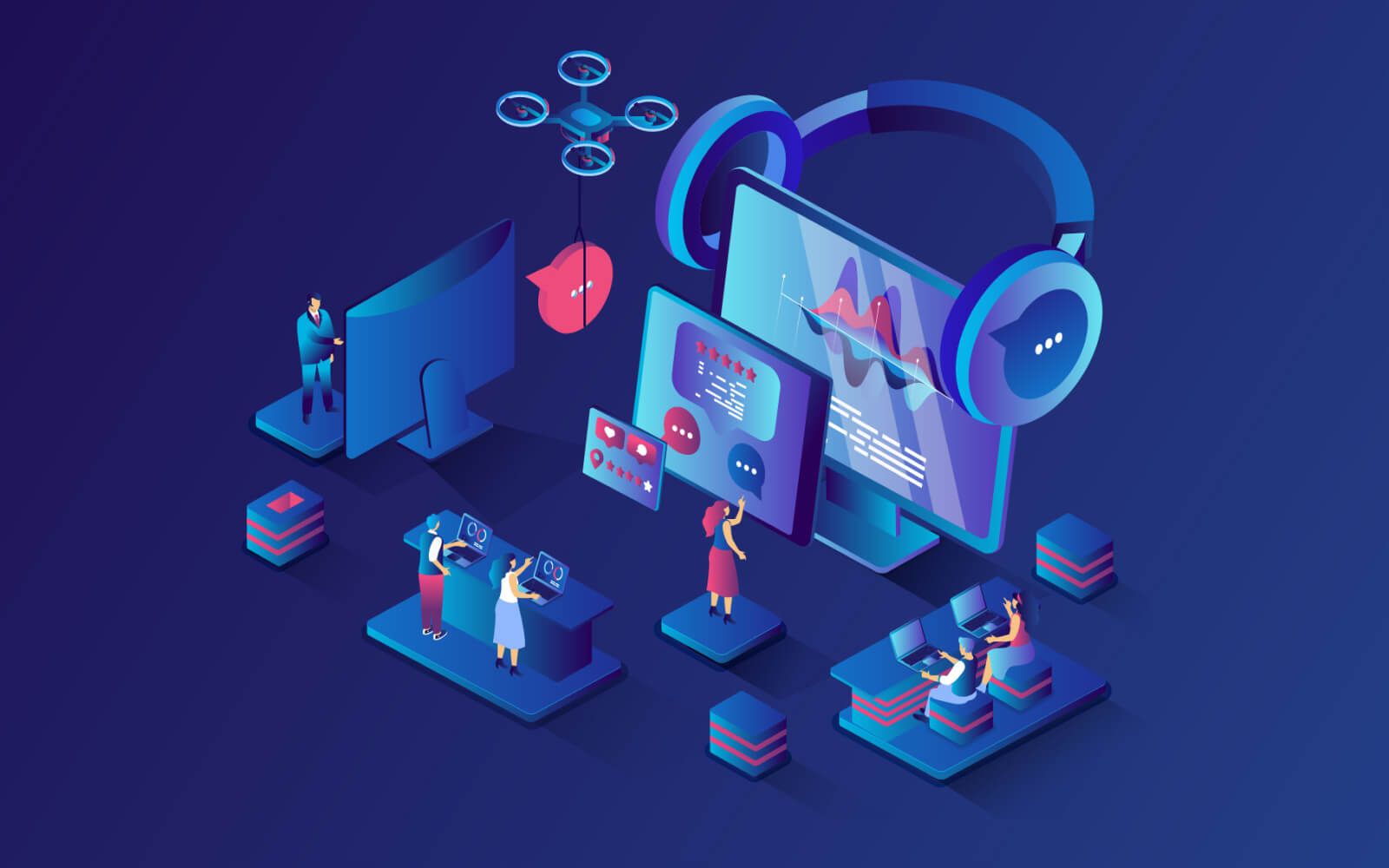In today’s fast-paced digital world, social media monitoring has become crucial for businesses and individuals alike. These tools help track mentions, analyze sentiment, and provide insights into online conversations. However, despite their importance, current social media monitoring tools often fall short of expectations. So, what’s missing from social media monitoring tools that could make them truly indispensable?
What’s Missing From Social Media Monitoring Tools?

The Basics of Social Media Monitoring Tools
Social media monitoring tools are designed to track and analyze online conversations. They offer features like keyword tracking, sentiment analysis, and reporting. These tools help brands understand public perception, track competitors, and identify trends. But while they offer these basic functionalities, there’s a lot more they could do.
What’s Missing From Social Media Monitoring Tools?: The Current Limitations
1. Lack of Contextual Understanding
One major limitation of current social media monitoring tools is their inability to understand context. They often focus on keywords without grasping the nuances of language. For instance, sarcasm and irony can lead to incorrect sentiment analysis, making it difficult for brands to gauge true public opinion.
2. Limited Sentiment Analysis
While many tools claim to offer sentiment analysis, the accuracy is often questionable. They struggle to distinguish between different emotions and fail to provide insights that are truly actionable. This limitation hampers the ability of businesses to respond effectively to customer feedback.
The Need for Real-Time Insights
1. Why Speed Matters
In the digital age, speed is everything. Real-time insights are crucial for businesses to respond promptly to customer inquiries, emerging trends, and potential crises. However, many social media monitoring tools lag in providing real-time data, leading to missed opportunities and delayed responses.
2. Examples of Missed Opportunities
Imagine a brand facing a PR crisis but only realizing it hours later because their monitoring tool didn’t provide real-time alerts. This delay can result in significant damage to reputation and lost opportunities for timely intervention.
Comprehensive Data Analysis
1. The Role of Big Data
With the vast amount of data generated on social media platforms, big data analysis is essential. However, many tools fail to leverage big data effectively, providing only surface-level insights rather than deep, comprehensive analysis.
2. Challenges with Current Tools
Current tools often struggle to process and analyze large volumes of data, leading to incomplete insights. This limitation prevents businesses from making fully informed decisions based on social media data.
Integration with Other Platforms
1. Importance of Seamless Connectivity
To maximize their effectiveness, social media monitoring tools need to integrate seamlessly with other platforms like CRM and marketing automation systems. This integration allows for a more comprehensive view of customer interactions across different channels.
2. Current Integration Gaps
Unfortunately, many tools lack the necessary integrations, resulting in data silos and fragmented insights. This gap hinders the ability of businesses to create cohesive strategies based on social media data.
User Experience and Accessibility
1. Ease of Use Concerns
A tool’s usability can significantly impact its adoption and effectiveness. Many social media monitoring tools have complex interfaces that require significant training, making them less accessible to non-technical users.
2. Accessibility Issues
Moreover, accessibility remains a concern, with many tools not fully catering to users with disabilities. Ensuring that these tools are inclusive and easy to use for everyone is crucial for widespread adoption.
Advanced Predictive Analytics
1. The Potential of AI and Machine Learning
AI and machine learning have the potential to revolutionize social media monitoring by offering predictive analytics. These technologies can anticipate trends, identify potential crises, and provide proactive recommendations.
2. Limitations in Predictive Capabilities
However, current tools often lack advanced predictive capabilities, limiting their ability to provide forward-looking insights. This limitation prevents businesses from staying ahead of the curve and proactively addressing emerging issues.
Customization and Flexibility
1. Importance of Tailored Solutions
Every business has unique needs, and social media monitoring tools should offer customization options to meet these requirements. Unfortunately, many tools have rigid structures that don’t allow for flexibility.
2. Current Rigid Structures
The lack of customization options means businesses often have to adapt their processes to fit the tool, rather than the other way around. This rigidity can lead to inefficiencies and missed opportunities for optimization.
Enhanced Security Measures
1. Data Privacy Concerns
With increasing concerns about data privacy, social media monitoring tools must prioritize security. However, many tools lack robust security features, putting sensitive data at risk.
2. What’s Missing in Security Features
Enhanced encryption, secure data storage, and compliance with data protection regulations are essential features that many current tools are missing. Without these measures, businesses risk data breaches and legal complications.
Cost-Effectiveness
1. Balancing Quality and Price
While quality monitoring tools are essential, they should also be affordable. Many businesses find the cost of these tools prohibitive, limiting their accessibility to only larger organizations.
2. The Affordability Issue
Striking a balance between quality and cost is crucial to ensure that businesses of all sizes can benefit from effective social media monitoring without breaking the bank.
The Role of Human Oversight
1. Importance of Human Touch
While automation plays a significant role in social media monitoring, human oversight remains crucial. Humans can provide the context, empathy, and understanding that automated tools often lack.
2. Limitations of Automation
Relying solely on automated tools can lead to misinterpretations and missed nuances in social media conversations. A balanced approach that combines automation with human insights is essential.
Cultural and Regional Sensitivity
1. Need for Localized Monitoring
Global brands need to monitor social media conversations across different regions and cultures. However, many tools lack the capability to account for cultural and regional differences in language and sentiment.
2. Current Shortcomings
This limitation can lead to inaccurate insights and ineffective strategies in diverse markets. Localized monitoring features are essential for global brands to succeed in different regions.
Future Trends
1. Emerging Trends
The future of social media monitoring is promising, with advancements in AI, machine learning, and data analytics paving the way for more sophisticated tools. These technologies will enhance the capabilities of monitoring tools and provide deeper insights.
2. Potential Innovations
We can expect innovations like real-time language translation, advanced sentiment analysis, and seamless integrations with other business platforms. These developments will address many of the current limitations and make social media monitoring tools more effective.
Conclusion
Social media monitoring tools play a crucial role in today’s digital landscape, but they still have room for improvement. By addressing current limitations such as contextual understanding, real-time insights, and integration with other platforms, these tools can become truly indispensable. The future holds great promise, with advancements in technology poised to transform the capabilities of social media monitoring tools. If you’re interested in experiencing cutting-edge solutions firsthand, consider requesting a demo from AIM Technologies to see how they can elevate your social media monitoring efforts.
FAQs
Why are real-time insights important in social media monitoring?
- Real-time insights allow businesses to respond quickly to customer feedback and emerging trends, preventing potential crises and maximizing opportunities.
How can AI improve social media monitoring tools?
- AI can enhance predictive analytics, improve sentiment analysis accuracy, and provide proactive recommendations for businesses.
What are the security concerns with social media monitoring tools?
- Security concerns include data privacy, potential breaches, and compliance with data protection regulations, which are often inadequately addressed by current tools.
Why is customization important in social media monitoring tools?
- Customization allows businesses to tailor tools to their unique needs, improving efficiency and effectiveness in monitoring social media conversations.
How can cultural sensitivity improve social media monitoring?
- Cultural sensitivity ensures accurate insights across different regions and markets, helping global brands develop effective strategies in diverse areas.




